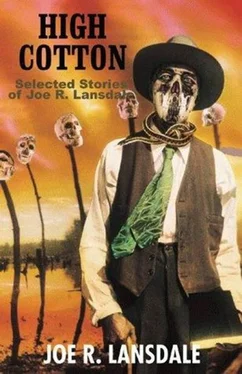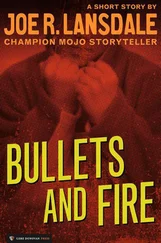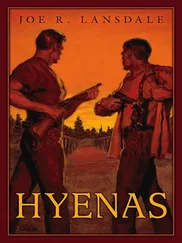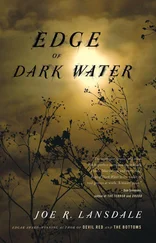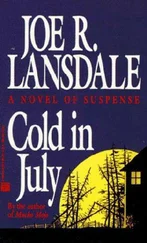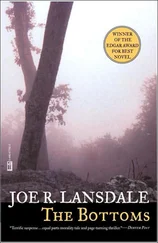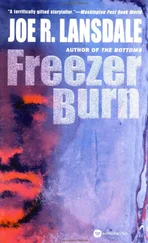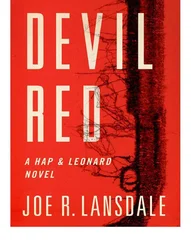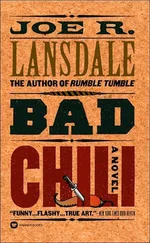Well, she could have them.
Hickok put the book down and glanced at his wife. This trip had not worked out. They had designed it to remold what had been lost, but no effort had been expended on her part that he could see. He tried to feel guilty, conclude that he too had not pushed the matter, but that simply was not true. She had turned him into bad company with her sourness. When they had started out he had mined for their old love like a frantic prospector looking for color in a vein he knew was long mined out.
Finishing his drink, and placing the book behind his head for a pillow, Hickok threw his feet up on the long bench and stretched out, long-fingered hands meshed over his eyes. He found the weight of his discontent was more able than Morpheus to bring sleep.
When he awoke, it was because his wife was running a finger along the edge of his cheek, tracing his jawbone with it. He looked up into her smiling face, and for a moment he thought he had dreamed all the bad times and that things were fine and as they should be; imagined that time had not put a weight on their marriage and that it was shortly after their wedding when they were very much on fire with each other. But the rumble of the train assured him that this was not the case, and that time had indeed passed. The moment of their marriage was far behind.
Mary Jane smiled at him, and for a moment the smile held all of her lost hopes and dreams. He smiled back at her. At that moment he wished deeply that they had had children. But it had never worked. One of them had a flaw and no children came from their couplings.
She bent to kiss him and it was a warm kiss that tingled him all over. In that moment he wanted nothing but their marriage and for it to be good. He even forgot the young girl he had seen while talking to Cody.
They did not make love, though he hoped they would. But she kissed him deeply several times and said that after bath and dinner they would go to bed. It would be like old times. When they often performed the ceremony of pleasure.
After the Cherokee porter had filled their tub with water, and after she had bathed and he had bathed in the dregs of her bath and they had toweled themselves dry, they laughed while they dressed. He kissed her and she kissed him back, their bodies pushed together in familiar ritual, but the ritual was not consummated. Mary Jane would have nothing of that. "After dinner," she said. "Like old times."
"Like old times," he said.
Arm in arm they went to the dining car, dressed to the hilt and smiling. They paid their dollar and were conducted to their table where they were offered a drink to begin the meal. As if to suggest hope for later, he denied one, but Mary Jane did not follow his lead. She had one, then another.
When she was on her third drink and dinner was in the process of being served, the blonde girl with the sunshine smile came in and sat not three tables down from them. She sat with the matronly woman and the little boy who loved trains. He found he could not take his eyes off the young lovely.
"Are you thinking about something?" Mary Jane asked.
"No, not really. Mind was wandering," he said. He smiled at her and saw that her eyes were a trifle shiny with drunkenness.
They ate in near silence and Mary Jane drank two more whiskies.
When they went back to the cabin, she was leaning on him and his heart had fallen. He knew the signs.
They went into their cabin and he hoped she was not as far along in drunkenness as he thought. She kissed him and made movements against his body with hers. He felt desire.
She went to the bed and undressed, and he undressed by the bench seat and placed his clothes there. He turned down the lamp and climbed into bed with her.
She had fallen asleep. Her breath came out in alcoholic snores. There would be no love-making tonight.
He lay there for a while and thought of nothing. Then he got up, dressed, went into the cars to look for some diversion, a poker game perhaps.
No poker game to be found and no face offered any friendly summons to him. He found a place to sit in the parlor car where the overhead lamp was turned down and there was no one sitting nearby. He got out the makings, rolled himself a smoke, and was putting a lucifer to it when Cody fell into the seat across from him. Cody had his pipe like before. "You'd think I'd have found some lucifers of my own by now, wouldn't you?"
Hickok thought just that, but he offered his still burning light to Cody. Cody bent forward and puffed flame into his packed pipe. When it was lit he sat back and said, "I thought you had turned in early. I saw you leave the dining car."
"I didn't see you."
"You were not looking in my direction. I was nearby."
Hickok understood what Cody was implying, but he did not acknowledge. He smoked his cigarette furiously.
"She is quite lovely," Cody said.
"I guess I made a fool out of myself looking at her. She is half my age."
"I meant your wife, but yes, the girl is a beauty. And she has a way with her eyes, don't you think?"
Hickok grunted agreement. He felt like a school boy who had been caught looking up the teacher's dress.
"I was looking too," Cody said cheerfully. "You see, I don't care for my wife much. You?"
"I want to, but she is not making it easy. We're like two trains on different tracks. We pass close enough to wave, but never close enough to touch."
"My God, friend, but you are a poet."
"I didn't mean to be."
"Well, mean to. I could use a bit of color and poetry in my life."
"An ambassador is more colorful than a clerk."
"An ambassador is little more than a clerk who travels. Maybe it's not so bad, but I just don't feel tailored to it."
"Then we are both cut from the wrong cloth, Cody."
Hickok finished his cigarette and looked out into the night. The shapes of the cherry trees flew by, looked like multi-armed men waving gentle goodbyes.
"It seems I have done nothing with my life," Hickok said after a while, and he did not look at Cody when he said it. He continued to watch the night and the trees. "Today when you told me about Custer and Yoshü, I did not feel sadness. Surprise, but not sadness. Now I know why. I envy them. Not their death, but their glory. A hundred years from now, probably more, they will be remembered. I will be forgotten a month after my passing — if it takes that long."
Cody reached over and opened a window. The wind felt cool and comfortable. He tapped his pipe on the outside of the train. Sparks flew from it and blew down the length of the cars like fireflies in a blizzard. Cody left the window open, returned his pipe to his pocket.
"You know," Cody said, "I wanted to go out West during the Japanese Wars: the time the Japanese were trying to push down into Colorado on account of the gold we'd found there, and on account of we'd taken the place away from them back when it was part of New Japan. I was young then and I should have gone. I wanted to be a soldier. I might have been a great scout, or a buffalo hunter had my life gone different then."
"Do you sometimes wonder that your dreams are your real life, Cody? That if you hope for them enough they become solid? Maybe our dreams are our trains not taken."
"Come again."
"Our possible futures. The things we might have done had we just edged our lives another way."
"I hadn't thought much about it actually, but I like the sound of it."
"Will you laugh if I tell you my dream?"
"How could I? I've just told you mine."
"I dream that I'm a gunman — and with these light-sensitive eyes that's a joke. But that's what I am. One of those long-haired shootists like in the Dime Novels, or that real life fellow Wild Jack McCall. I even dream of lying face down on a card table, my pistol career ended by some skulking knave who didn't have the guts to face me and so shot me from behind. It's a good dream, even with the death, because I am remembered, like those soldiers who died at the Little Big Horn. It's such a strong dream I like to believe that it is actually happening somewhere, and that I am that man that I would rather be."
Читать дальше
